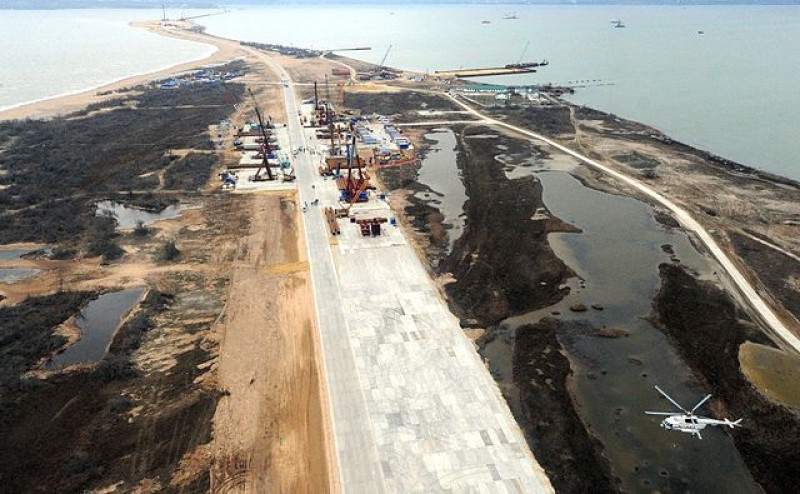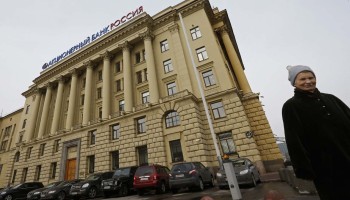Seven of the companies sanctioned by the Treasury Department’s Office of Foreign Assets Control were linked to the construction of a bridge over the Kerch Strait between the Crimean Peninsula and the Russian mainland. The companies include SGM-Most OOO, a Russian contractor owned by a previously sanctioned pipeline construction company.
The Kerch Strait Bridge, set to be completed in 2018, has been made a priority by Putin but has recently drawn controversy over allegations of worker abuse and unpaid wages.
The bridge’s builders argue the sanctions will not impede construction. In a statement quoted by Russian broadcaster RT, the official information center for the bridge said that contractors have "all necessary resources for the timely implementation of the project."
The updated sanctions list names a total of 17 pro-Russian Ukrainian separatists, including 11 operating in Crimea. A total of 18 companies operating in Crimea were included in the new round of sanctions. Many of the newly sanctioned companies were 50 percent or more owned by previously sanctioned Russian companies, the department said.
Newly sanctioned companies include Russian firm CJSC ABR Management, which the Treasury Department says has acted on behalf of the previously sanctioned Bank Rossiya. Also identified were a number of subsidiaries of the Bank of Moscow and Gazprombank, both of which were sanctioned in July 2014.
A spokesman for Russian President Vladimir Putin, Dmitry Peskov, raised the possibility of Russia imposing its own countermeasures in response to the US move, RT reported.
"We have to analyze (which sanctions were) expanded, but usually, in such cases, a principle of reciprocity is used," Peskov was quoted as saying.
"We do not think such a rhetoric is constructive, promising and conducive to the solution of any problems," he said.
OCCRP reported in August that many western and Middle Eastern businessmen are still covertly doing business with Crimea in violation of Western sanctions.






